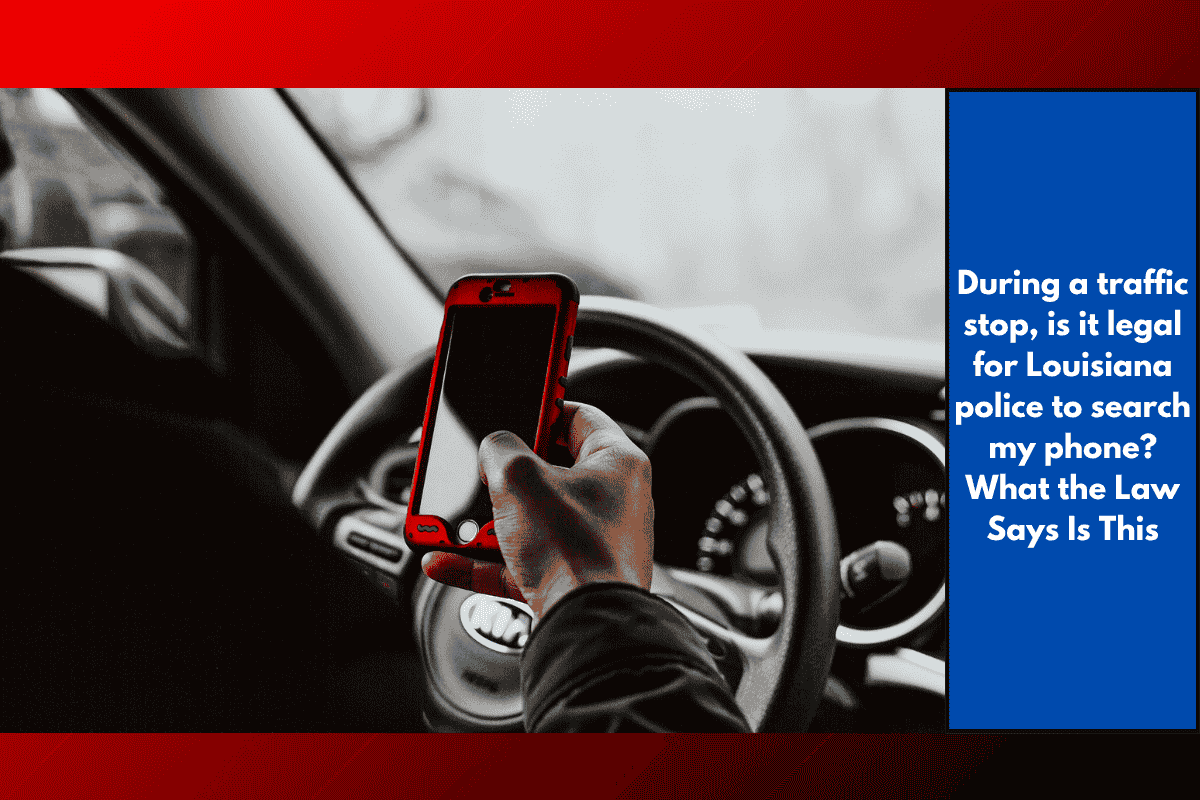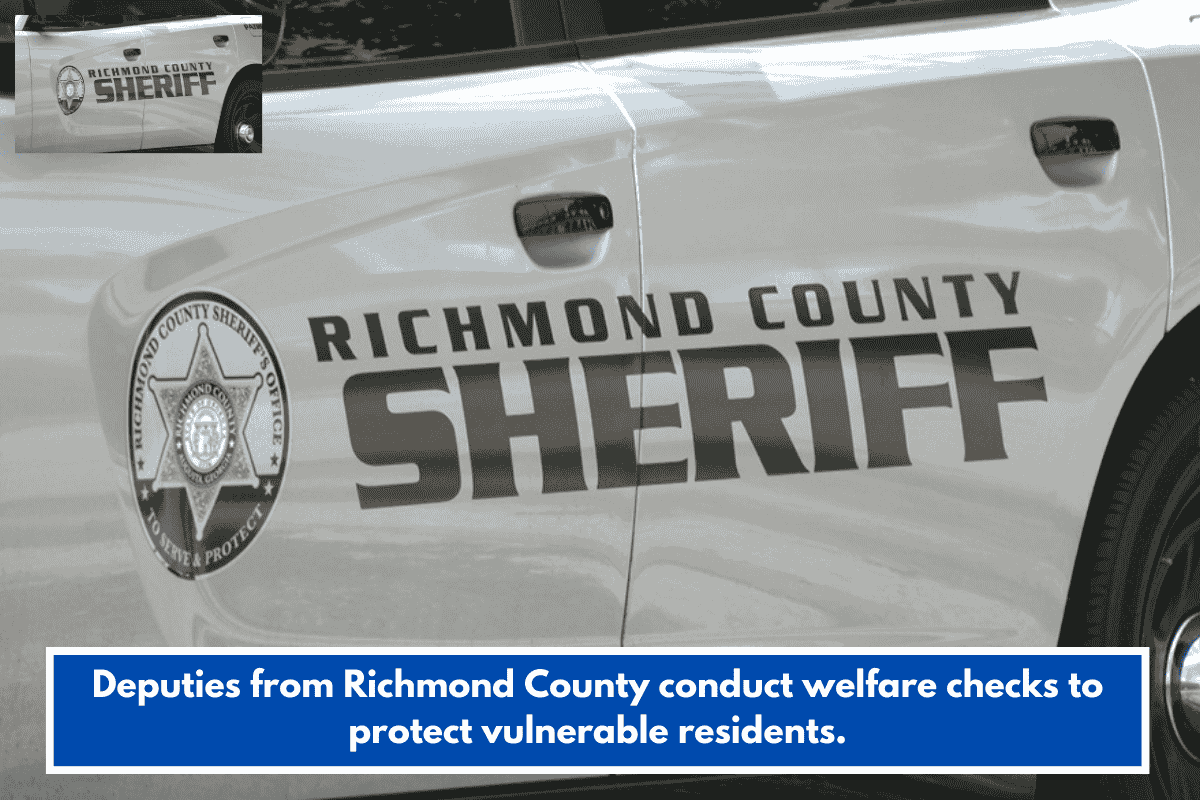In today’s digital age, smartphones contain a wealth of personal information—messages, photos, location data, contacts, and much more. It’s no wonder that many people wonder about their privacy rights when interacting with law enforcement. If you’re stopped by police in Louisiana, you might ask: Can the police search your phone during a traffic stop?
The short answer is no, police cannot search your phone during a routine traffic stop without your consent or a warrant. However, there are some important exceptions to keep in mind. In this article, we’ll discuss what Louisiana law says about police searching your phone and when they can legally do so.
The Fourth Amendment and Your Right to Privacy
The Fourth Amendment of the United States Constitution protects you from unreasonable searches and seizures. This means that, in most cases, the police need either your consent or a warrant to search your personal belongings, including your phone.
During a traffic stop, this protection still applies. Police officers cannot just randomly search your phone without a valid reason, and they must follow legal procedures to do so. Any search conducted without a warrant or your consent could potentially violate your constitutional rights.
Can the Police Search Your Phone During a Traffic Stop in Louisiana?
In Louisiana, as in the rest of the United States, police need probable cause or a warrant to search your phone. This means that during a traffic stop, unless the officer has a clear, legal reason to believe you have committed a crime, they cannot search your phone on a whim.
However, there are a few exceptions where police might be able to search your phone, even during a traffic stop.
Exceptions to the Warrant Requirement
Consent: If the police ask to search your phone and you agree, they are allowed to do so. This is known as “consent,” and it’s a key exception to the warrant requirement. It’s important to remember that you have the right to refuse this request. If you do consent, anything found on your phone could be used against you in court.
Probable Cause: If the police have probable cause to believe that your phone contains evidence of a crime, they may be able to search it. For example, if they suspect that the phone has been used to take pictures or videos of illegal activity (like drug trafficking or driving under the influence), they may be able to seize and search the phone without a warrant. In this case, the search must still meet legal standards to be deemed valid.
Search Incident to Arrest: If you are arrested during the traffic stop, the police may search your phone as part of the process of booking you into custody. This search is typically allowed under a “search incident to arrest” exception, meaning that once you’re taken into custody, police can search your phone and other personal items on your person. However, the scope of this search is limited to what is necessary for booking purposes, and it typically doesn’t extend to a detailed examination of your phone’s content unless it’s directly related to the arrest.
Exigent Circumstances: In some cases, police may conduct a search without a warrant if there are urgent circumstances that make it impossible to wait for a warrant. For example, if officers believe that evidence on your phone could be destroyed or altered if they don’t act quickly, they might have grounds to search it under “exigent circumstances.”
Can Police Search Your Phone’s Data or Only the Physical Phone?
The law is somewhat clearer about police accessing the physical phone versus the data inside the phone. The U.S. Supreme Court has ruled that law enforcement cannot search the contents of your phone without a warrant, even if they have your phone in their possession. This means they can’t simply scroll through your messages, photos, emails, or other private information without first obtaining a warrant or meeting one of the exceptions discussed above.
This ruling ensures that police must respect your digital privacy and cannot use a traffic stop or arrest as an excuse to invade your personal data.
How Can You Protect Your Phone’s Privacy During a Traffic Stop?
While police need a valid reason to search your phone, it’s always wise to be cautious. Here are some ways you can protect your phone’s privacy:
Know Your Rights: If the police ask to search your phone, you have the right to refuse. Politely let them know that you do not consent to the search.
Passcodes and Biometric Locks: You can protect your phone’s contents by using a passcode, fingerprint, or facial recognition. While police can ask you to unlock your phone, they cannot force you to provide your password or unlock it with your fingerprint (in some states). However, in certain situations, they may still be able to access it through other means if they have probable cause or a warrant.
Keep Data Safe: Be mindful of the information you store on your phone. Avoid storing sensitive or personal data that could potentially be used against you in legal situations. Additionally, consider using encryption tools and secure messaging apps for added privacy.
In Louisiana, police cannot search your phone during a traffic stop without a valid reason, such as your consent, a warrant, or certain exceptions like probable cause or arrest. The Fourth Amendment ensures that you have the right to privacy, and this extends to your phone. However, knowing your rights and how to protect your phone can help you avoid unnecessary searches and potential violations of your privacy.
If you’re ever in doubt, it’s always best to stay calm and politely assert your rights. The police may have legal grounds to search your phone in certain situations, but they must do so within the confines of the law.
SOURCES
[1] https://www.ericgjohnsonlaw.com/what-rights-do-i-have-during-a-police-search/
[2] https://www.legis.la.gov/legis/Law.aspx?d=112364
[3] https://www.laaclu.org/en/know-your-rights/interacting-police
[4] https://ossiebrown.com/blog/rights-police-dont-want-you-to-know/
[5] https://kpel965.com/can-louisiana-police-search-your-phone-during-a-traffic-stop/














